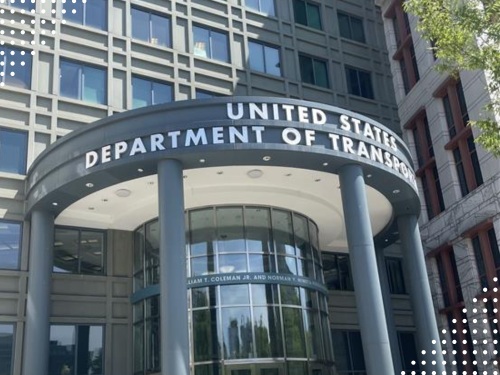A new nine-page survey conducted by the American Association of State Highway and Transportation Officials details the potential state-by-state fallout from short-term federal program and funding extensions on individual state department of transportation programs – including the current one-month extension of highway, highway safety, transit, and passenger rail programs slated to expire on October 31.
[Above photo by the KYTC]
“We routinely utilize more than one quarter of our contract authority in the first quarter of a fiscal year so that contractors can begin work as soon as possible,” noted the Alabama Department of Transportation in the survey.

“A short-term extension that provides only 1/12th of our contract authority forces us to either delay letting much needed projects due to inadequate funding or requires us to front the cost with state funds which severely impacts our diminishing state cash,” it said.
The agency added that limited contract authority affects its ability to start new projects – conducting preliminary engineering work plus utility and right-of-way analysis, for example – that ultimately delays the letting dates of other critical projects.
“The impacts of a short-term extension are not just project-related; it also increases labor, construction and material costs affecting ALDOT and its contractors, consultants, material suppliers, and Alabama citizens who work for these businesses,” the Alabama DOT added. “Many of these businesses and employees are still struggling to recover from COVID-19 related effects, and the postponing of work a short-term extension generates is profound and unfortunate.”

The Florida Department of Transportation added that short-term extensions “create an undue administrative burden upon the states until a full year of apportionment is received. Certain program areas may be required to run on a shoe-string budget and local MPO [metropolitan planning organizations] partners may encounter funding shortfalls, confusion, and needless uncertainty.”
The Kentucky Transportation Cabinet noted in the survey that, during times of uncertainty, costs for transportation-related services increase, reducing the buying power of each dollar directed toward the agency’s goal of providing safe, efficient, fiscally responsible and environmentally sound transportation for the benefit of all its residents.
“Over the next four months, KYTC has over a quarter of a billion dollars in projects scheduled for construction lettings,” the agency noted. “Without the certainty of full federal-aid highway funding, many of these projects could be delayed until federal funds are in hand.”

“Minnesota depends on the stability and flexibility of federal formula apportionment funding to plan, implement, and develop new projects [as] federal project development processes … do not support quick development of new federally funded projects,” noted the Minnesota Department of Transportation.
“It requires planning, public engagement, and environmental processes,” the agency said. “Minnesota needs the stability of reliable formula funding and a reasonable timeline when it comes to federal funding, to ensure that we can delivery new projects and programs through the federal project development process.”
The department added that there are the additional costs of “contingency planning” to calculate in case federal surface transportation funding is decreased or interrupted due to a short-term extension.
“Valuable resources are expended to change project plans and even program plans due to funding uncertainty,” the Minnesota DOT said. “Minnesota may have to move back project lettings, missing critical dates for projects, and extending them beyond one season. These changes would negatively impact deadlines and project costs.”
 Top Stories
Top Stories


